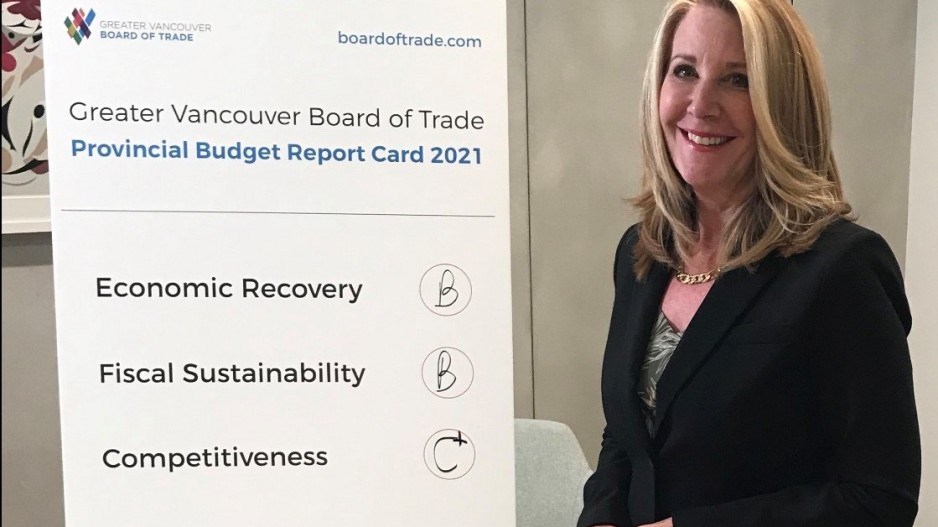The province’s latest budget builds on existing pandemic supports for businesses as B.C. battles a third wave of COVID-19.
Budget 2021 includes funding for the province’s business recovery grant program, tables new funds for tourism sector supports and continues a PST exemption.
“We welcome the continued investment of initiatives announced in the fall to support businesses affected by the pandemic as well as additional support to those affected by recent health orders such as tourism and hospitality,” said Bridgitte Anderson, president and CEO of the Greater Vancouver Board of Trade.
The board gives the budget a ‘B’ grade for economic recovery.
“However, we are still striving for a post-pandemic vision for the economy that attracts investment, creates good jobs and promotes opportunity. It’s not clear this budget puts B.C. on the fast track to thrive in an increasingly competitive world,” she said.
Total economic recovery measures and supports for businesses this year are valued at $806 million.
“Our $800 million investment that you see here in this budget is part of our commitment to work with the business community to continually evolve our programs, making sure that we're meeting their needs, as we all do our best to get through this pandemic and into recovery,” said Minister of Finance Selina Robinson.
This year, the budget allocates $195 million in planned funding to B.C.’s Small and Medium Sized Business Recovery Grant Program, which provides businesses access to up to $30,000 in grant funding. Tourism-related businesses can apply for up to $45,000.
The province forecasts that $150 million was spent on the program last year, and Robinson said government is confident money under that program is being deployed “very, very quickly.”
The Increased Employment Incentive tax credit is budgeted to cost $150 million, and is intended to support private sector hiring.
A provincial sales tax exemption on select equipment and machinery will continue until the end of September – a measure expected to save businesses around $230 million this year.
Restaurants, bars and tourism operators with liquor licences will permanently be able to purchase beer, wine and spirits at wholesale prices, a measure expected to cost $71 million this year.
Some $120 million has been allocated to support B.C.’s struggling tourism sector, most of which – $100 million – has been reserved to support the sector’s recovery, which includes support for major tourism attractions.
The tourism-related funding comes from the province’s $3.25 billion Pandemic and Recovery Contingencies fund, which may be used to fund other supports for businesses in the future, Robinson said.
She added that government is continuing to work with the tourism and hospitality sector on how their ongoing needs can be met.
B.C.’s budget for the Arts Infrastructure Program has been doubled to $6 million over three years to support the recovery of arts and culture organizations, which can apply for grants of up to $250,000 for capital improvement projects.
The province will also invest $500 million over three years to establish a new strategic investment fund “to attract and anchor high-growth businesses, talent and good jobs in B.C.,” according to the budget. InBC Investment Corp. is expected to start investments later this year, and is intended to support B.C.’s innovation and technology sector.
This year, property taxes paid by commercial property owners will return to pre-pandemic levels. Last year, tax relief cost B.C. an estimated $714 million in foregone revenue.
Revenue is expected to grow 27.8% this year as the relief program ends.
@hayleywoodin

.jpg;w=120;h=80;mode=crop)
